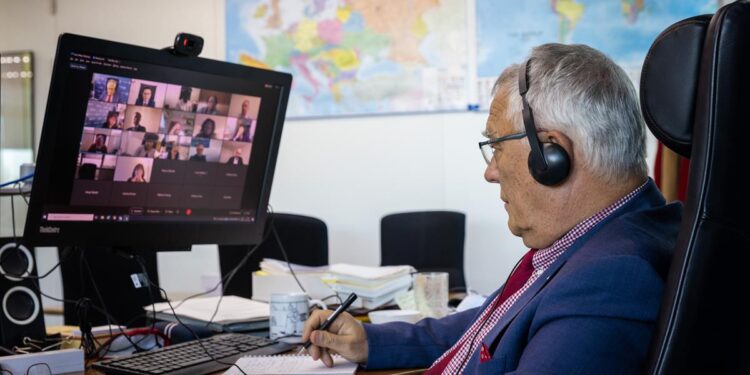The judges of the International Criminal Court have pledged to continue exploring ways to fill any gaps in the system in addressing some of the issues highlighted in the Independent Expert Review report.
A statement posted on the ICC website after their judicial retreat held at the court’s headquarters in The Hague on November 19 and 20, 2021 said the judges’ actions were likely to be “…through informal and complementary means to provide support to staff members”.
The retreat took place virtually due to the ongoing Covid-19 pandemic. It focused on a series of proposals developed by the judges in response to the report of the Independent Expert Review (IER), released in September, 2020. The proposals addressed a broad range of procedural matters and institutional issues, including gender equality and judicial collegiality.
The judges discussed several issues of institutional nature, including judiciary-related aspects of addressing bullying and harassment in the workplace, which was reflected in recommendation 87 of the report. The IER report said the leadership of the court should adopt and demonstrate a clear commitment to a multi-pronged strategy to deal with predatory behaviour in the workplace, namely bullying, harassment, and sexual harassment.
“It must be clear to all staff, particularly supervisors, that such behaviour is inexcusable and unacceptable at the court and will not be tolerated. There should be avenues by which staff can safely report bullying and harassment to managers and receive guidance and support as to the procedure to follow if they wish to lodge a complaint,” the report said.
The experts (https://asp.icc-cpi.int/iccdocs/asp_docs/ASP19/IER-Final-Report-ENG.pdf) raised issues of unwelcome behaviour amounting to sexual harassment, notably uninvited and unwanted sexual advances from senior male staff to their female subordinates. In the report, female interns were identified as a particularly vulnerable group to such approaches.
“The judges also discussed recommendation 88, concerning gender equality, in the context of the judiciary, and agreed to establish a working group of judges to consider how the judges could contribute to ongoing court-wide processes,” the statement said.
The judges agreed to amend the Chambers Practice Manual and to propose an amendment to the Regulations of the Court in order to enhance the efficiency and consistency of proceedings.
They adopted a model for the decision on Directions for the Conduct of Proceedings related to the key procedures at trial. The model covers the opening of the trial, order of evidence, matters relating to witness testimony, and protective measures, and includes an agreed single evidentiary system (submission system) for documentary, digital and physical evidence which will be annexed to the Chambers Practice Manual.
“This agreed practice will significantly advance the efficiency of trial preparation and trial proceedings. Moreover it will facilitate consistency and predictability amongst the various trial chambers in terms of the actual proceedings,” the statement said.
Another IER proposal the judges plan to implement is recommendation 199, which states: “When a confirmation decision is issued, it should be transmitted immediately to the Presidency with the record of the proceedings, and the Presidency should forthwith transmit both to the Trial Chamber to begin trial preparation. This will ensure a smoother and more rapid transition from the pre-trial to the trial phase,” the statement said.
The judges plan to update the Chambers Practice Manual to reflect updated practice on the approach to transmitting victims’ applications to participate in proceedings. They said this will enhance consistency and efficiency, noting the vital and unique role of victims in proceedings at the ICC.
The judges further discussed interlocutory appeals, under recommendation 213 of the IER report. It states that the judges should consider introducing into the Chambers Practice Manual guidelines regarding decisions on substantive and procedural issues which may be subject to interlocutory appeal, as well as clarification of cases in which the proceedings should be stayed for the time necessary to adjudicate interlocutory appeals.
The judges also discussed recommendation 129, which states that the Presidency should continue its efforts towards cultivating increased collegial cooperation between, and a respectful working environment for judges and chamber staff.
The Assembly of States Parties to the Rome Statute of the ICC established the Independent Expert Review in December 2019. The overall mandate of the experts was to identify ways to strengthen the ICC and the Rome Statute system to promote universal recognition of their central role in the global fight against impunity and enhance their overall functioning.
The report was one of the items on the agenda during the 20th session of the Assembly of States parties that took place on December 6-10, 2021.







